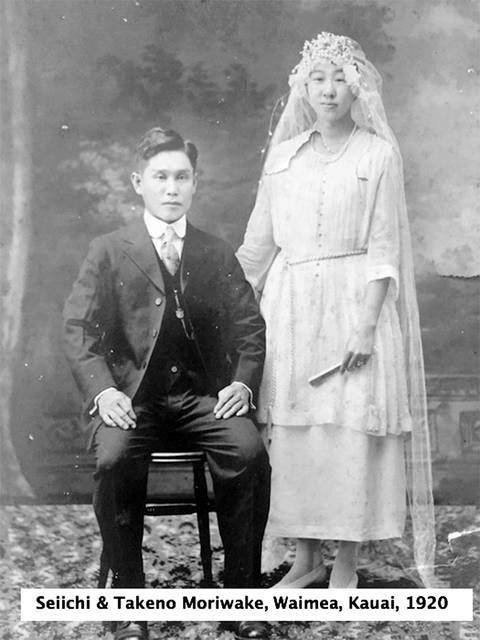In 1911, when 21-year-old Seiichi Moriwake (1890-1950) of Mana Camp, Kauai, left Hawaii with his parents, Mangoro and Suye Moriwake, for an extended stay in Hiroshima, Japan — the city from which his parents had immigrated to Hawaii in 1887
In 1911, when 21-year-old Seiichi Moriwake (1890-1950) of Mana Camp, Kauai, left Hawaii with his parents, Mangoro and Suye Moriwake, for an extended stay in Hiroshima, Japan — the city from which his parents had immigrated to Hawaii in 1887 — he could never have possibly imagined that three years later, in 1914, he would find himself impressed into the Japanese Army.
As Moriwake later related after his return to Hawaii in June 1916: “I left here with my parents in 1911 and went to Hiroshima. One day the officials came to me asking why I was not in the army. I told them I was an American citizen, having been born in Hawaii, but had no papers to prove my assertion. The next thing I knew they clapped me into the service, and there I have been for the last two years. I was about ready to return to the Hawaiian Islands when I was thrust into the army.”
The basic training Moriwake received as a Japanese army infantryman lasted the entire first year of his military service.
He learned general military subjects, bayonet fighting and combat marksmanship, and participated in squad, platoon, company and regimental tactics and field exercises.
All the while, his physical endurance was built through long cross-country marches in all weather conditions both day and night.
At the conclusion of his training, he and his fellow soldiers were put to the test in maneuvers witnessed by the Emperor, after which they were assigned to an operational unit.
When his two-year term of military service expired, he gladly returned home to Hawaii, where he found employment as a plumber’s helper in Honolulu and eventually became a licensed plumber.
Later, on Kauai, he made his home in Yomane Camp — located near the Waimea Landing — with his wife, Takeno Moriwake (nee Mukai), and his children: Asahi, Hiroji, Jitsutaro and Suye.
Interestingly, his brother, Kenichi, was the first American of Japanese ancestry to graduate from Harvard, and his sister, Tokuku, became a nationally ranked tennis player.


